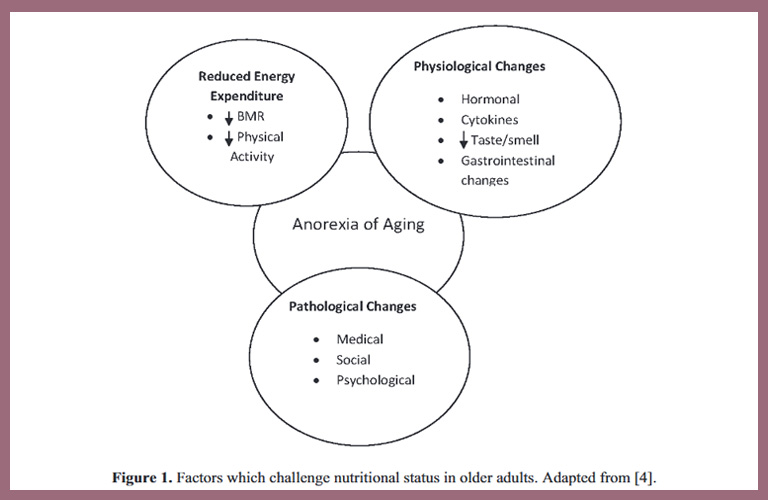Aging, Nutritional Status and Health
by Wilma Leslie and Catherine Hankey - Healthcare 2015, 3(3), 648-658; https://doi.org/10.3390/healthcare3030648 - 30 Jul 2015
The older population is increasing worldwide and in many countries older people will outnumber younger people in the near future. This projected growth in the older population has the potential to place significant burdens on healthcare and support services. Meeting the diet and nutrition needs of older people is therefore crucial for the maintenance of health, functional independence and quality of life. While many older adults remain healthy and eat well those in poorer health may experience difficulties in meeting their nutritional needs. Malnutrition, encompassing both under and over nutrition increases health risks in the older population. More recently the increase in obesity, and in turn the incidence of chronic disease in older adults, now justifies weight management interventions in obese older adults. This growing population group is becoming increasingly diverse in their nutritional requirements. Micro-nutrient status may fluctuate and shortfalls in vitamin D, iron and a number of other nutrients are relatively common and can impact on well-being and quality of life. Aging presents a number of challenges for the maintenance of good nutritional health in older adults.
1. Introduction
Improvements in public health and medical care are well acknowledged factors in the large improvements in infant and childhood mortality observed in the first half of the 20th century. Increased longevity in adults is also now increasingly common in the developed world. These demographic changes have resulted in increasing numbers and hence proportions of the adult population aged over the age of 60. The time when older people will outnumber younger people is rapidly approaching, it is estimated that by the year 2025 the number of people worldwide aged 60 and over will exceed 1.2 billion1. This projected growth in the older population will create significant additional demands on healthcare and support services2.
Diet and lifestyle, coupled with maintenance of a healthy body weight are important in the maintenance of health for all age groups but are crucial for healthy aging. Maintaining a good nutritional status has significant implications for health and wellbeing, delaying and reducing the risk of developing disease, maintaining functional independence and thus promoting continued independent living3.
While many older adults remain healthy and eat well, those in poorer health may experience difficulties in meeting their nutritional needs. Meeting the diet and nutrition needs of older people is crucial for the maintenance of health, functional independence and quality of life.
2. Nutritional Needs and Changes with Advancing Years
Aging is accompanied by many changes that can make it more difficult for nutritional needs to be met. These changes have been categorised into broad categories of physical/physiological and psychosocial.

Figure 1. Factors which challenge nutritional status in older adults. Adapted from4.
Malnutrition, encompassing both under and over nutrition increases health risks in the older population.
References:
1. United Nations 2013 World Population Aging Report. Available online: http://www.un.org/en/development/desa/population/publications/pdf/ageing/WorldPopulationAgeing2013.pdf (accessed on 27 July 2015).
References2. Prince, M.J.; Wu, F.; Guo, Y.; Gutierrez Robledo, L.M.; O’Donnell, M.; Sullivan, R.; Yusuf, S. The burden of disease in older people and implications for health policy and practice. Lancet 2015, 385, 549–562. [Google Scholar] [CrossRef]
3. Jones, J.; Duffy, M.; Coull, Y.; Wilkinson, H. Older people living in the community—Nutritional needs, barriers and interventions: A literature review. Available online: http://www.scie-socialcareonline.org.uk/older-people-living-in-the-community-nutritional-needs-barriers-and-interventions-a-literature-review/r/a11G00000017xKZIAY (accessed on 23 March 2015).
4. Ahmed, T.; Haboubi, N. Assessment and management of nutrition in older people and its importance to health. Clin. Interv. Aging 2010, 5, 207–216. [Google Scholar] [PubMed]





